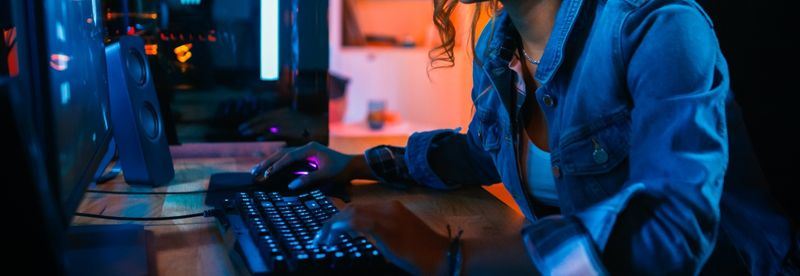In May 2019, I wrote an article discussing the state of patent-eligible and patent-ineligible subject matter and its impact on casino gaming innovations. See “Gaming Patents and ‘Abstract Ideas’: What Are the Rules of the Game?”, Casino & Gaming International 37:35-40 (May 2, 2019); available athttps://issuu.com/cgimagazine/docs/2019-2. In short, mathematical algorithms, mental processes and rules of a game constitute “abstract ideas” that are patent-ineligible subject matter.
Roughly two years on, it is time to revisit the state of the law.
Recent Decisions on Patent Eligibility
A few very recent Federal Circuit decisions are worth examining, as they provide some additional guideposts regarding what is and is not patent-eligible subject matter. First, Cxloyalty, Inc. v. Maritz Holdings Inc., No. 2020-1307 (Fed. Cir. Feb. 8, 2021), involved a graphical user interface between a consumer, a loyalty program and a vendor. One could envision such an invention, perhaps, between a casino patron, a players’ rewards program and a third-party, partner restaurant or hotel at which comps could be used (or earned through patronage).
PTAB found that the invention was directed to an abstract idea of a broker but concluded that the business method claims were eligible under step two of Alice.1 Specifically, PTAB appears to have relied heavily on the fact that the patentee submitted expert testimony to support the allowed claim. In reversing, the Federal Circuit found that the claims do not survive under Alice step two, as the limitations in question did not constitute a patent-eligible technological solution to a technical problem.
Moreover, while the expert testimony may have supported a finding of “novel” subject matter, “a patent claim is not eligible under § 101 merely because it recites novel subject matter.” Indeed, under Alice step two, where an abstract idea uses wholly conventional techniques “specified at a high degree of generality,” a claim cannot be pulled into the realm of patent-eligible subject matter.
Next, came a series of two related cases. In re Board of Trustee of the Leland Stanford Junior Univ., No. 2020-1012 (Fed. Cir. Mar. 11, 2021), involved improved haplotype phasing techniques.2 PTAB determined that the claims were directed to either the “mental steps of receiving, storing, or providing information” or “mathematical concepts.” Specifically, PTAB found that the claims did not improve computer technology but rather used off-the-shelf computing equipment to perform an improved mathematical analysis.
The Federal Circuit affirmed, concluding that the claims were drawn to abstract mathematical calculations. Further, the court held that storing and providing information on request was inadequate under Alice step two, explaining that it was “hard to imagine” a more generic description of claim limitations related to hardware.
For the gaming industry, the takeaway reinforces much of what we thought we have known—the mathematical processes and statistics behind casino games are not likely where an innovation’s patent-eligible subject matter will be found.
The follow-on case, In re Board of Trustees of the Leland Stanford Junior Univ., No. 2020-1288 (Fed. Cir. Mar. 25, 2021), involved computerized statistical methods for determining haplotype phase. PTAB determined that the claim was directed to mathematical concepts—i.e., mathematical relationship, formulas, equations and calculation. Further, PTAB determined that the claim recited two abstract mental processes—receiving and storing genotype data in a computer memory—and concluded that the claim included no specific steps applying the series of computations in a practical way (i.e., resulting in improved computer functionality).
In affirming, the Federal Circuit explained that (Alice step one) a “different use of a mathematical calculation, even one that yields different or better results, does not render patent eligible subject matter.” At Alice step two, the court concluded that the claims were abstract calculations appended to well-understood, routine and conventional steps for haplotype extraction and data storage, explaining that the application of those elements was itself a patent-ineligible mathematical analysis.
Again, the takeaway is: When seeking patent protection for innovations in the gaming space, look for patentable subject matter in areas other than the rules of the game, the statistics underlying a game and the mathematical processes that are often interwoven into casino games.
A Comprehensive IP Protection Strategy Is Essential
In sum, two years later, we are in about the same place regarding patent-eligible and patent-ineligible subject matter. That reinforces the need—when protecting a product, and especially a product in the casino gaming space—for a comprehensive intellectual property protection strategy.
Such a strategy should employ coverage involving all of the IP disciplines, including patents, trademarks, copyrights, and even, potentially, trade secrets.
Resources
1Under Alice step one, claims that “focus on a specific means or method that improves the relevant technology” (such as “an improved cardiac monitoring device” that uses unconventional techniques to detect atrial fibrillation and atrial flutter) typically pass, and claims that “are instead directed to a result or effect that itself is the abstract idea and merely invoke generic processes and machinery” (such as a method “for detecting fraud in financial transactions during a payment clearing process” using a computer) do not. See CardioNet, LLC v. InfoBionic, Inc., 955 F.3d 1358 (Fed. Cir. 2020); Bozeman Fin. LLC v. Fed. Reserve Bank of Atlanta, 955 F.3d 971, 978-980 (Fed. Cir. 2020). Under Alice step two, claims in which the only non-abstract elements are “conventional, off-the-shelf computer components” are usually doomed to fail. Id.
2“Haplotype phasing is a process for determining the parent from whom alleles—i.e., versions of a genes—are inherited. A haplotype phase acts as an indication of the parent from whom a gene has been inherited.”




